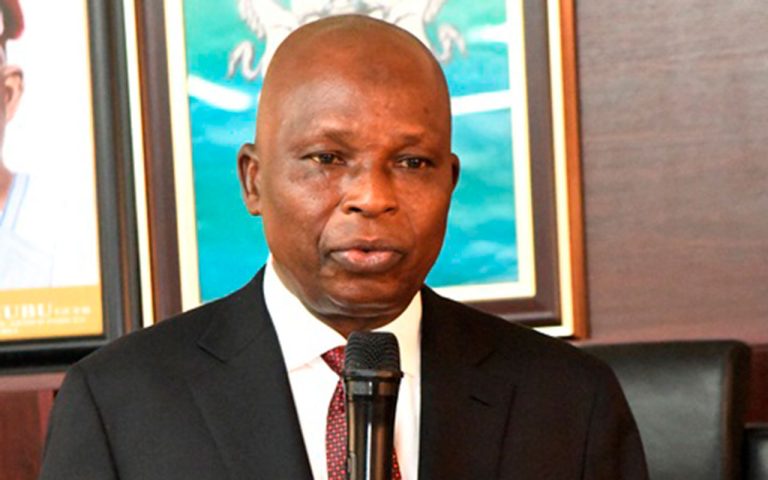From Godwin Tsa, Abuja
The Attorney General of the Federation (AGF) and Minister of Justice, Prince Lateef Fagbemi (SAN), has warned that any state governor who tampers with funds belonging to their Local Government Areas (LGAs) will be guilty of gross misconduct, an impeachable offence.
The AGF made this statement at the 2024 annual conference of the National Association of Judiciary Correspondents (NAJUC) held in Abuja.
Fagbemi also cautioned the chairmen of the 774 LGAs across Nigeria against mismanaging local government funds.
In his paper titled Aftermath of Supreme Court Judgment on Local Government Financial Autonomy: What Next?, Fagbemi said: “By the July 11, 2024 judgement of the Supreme Court, which granted financial autonomy to LGAs in the country, any governor who tampers with the finances of the LGAs in his state is seen to have committed a gross misconduct, which is an impeachable offence.”
While highlighting the critical role local governments play in delivering grassroots development, the AGF urged council chairmen and other officials to prioritise their constitutional duties. “Primary education must be accessible to every child. Pregnant women and infants must receive quality healthcare, and the vulnerable in society must benefit from sustainable welfare programmes,” he said. He noted that the financial autonomy granted to local governments by the Supreme Court was designed to empower them to carry out their responsibilities effectively.
However, he warned that any local government chairman who misuses public funds and fails to deliver on constitutional mandates risks imprisonment, as local government chairmen do not have immunity like state governors.
He further stated that any debt incurred by governors in relation to the official functions of state governments must be handled by the state and should not be shared with local government areas, as such projects are not the constitutional responsibilities of local governments.
The AGF commended President Bola Ahmed Tinubu’s administration for its commitment to strengthening governance structures at all levels and urged local government officials to embrace transparency, warning that the era of impunity was over.
Fagbemi also called on the media to ensure accurate and responsible reporting of governance and judicial issues, adding: “Good governance is a collaborative effort, and every tier of government must be held accountable.”
The Chief Justice of Nigeria (CJN), Justice Kudirat Kekere-Ekun, in her speech, said the judiciary and the media occupy unique and complementary roles in society’s development.
Represented by the Secretary of the National Judicial Institute (NJI), Mr Abdullaziz Olumo, the CJN noted that while the judiciary serves as the guardian of justice, equity, and the rule of law, the media acts as the conscience of society, disseminating information, shaping public opinion, and ensuring accountability.
According to her, the media is entrusted with the responsibility of informing the public about judicial activities, and the judiciary relies on accurate and ethical reportage to enhance public confidence in its work. She described the media as a critical partner of the judiciary in advancing democracy.
Justice Kekere-Ekun expressed concern over sensationalism in news reporting, which she said distorts facts and undermines public confidence in the judiciary. She highlighted the dangers of “trial by media,” where premature narratives prejudge cases, sometimes infringing on constitutional rights. She referenced the landmark U.S. case of Sheppard v. Maxwell (1954), where excessive media interference led to the overturning of a conviction due to the denial of a fair trial.
Earlier in his keynote address, Prof Mike Ozekhome (SAN) stated that the legal profession is essential for a stable society and charged the judiciary to ensure that their judgements reflect justice rather than technicalities.
Speaking on the theme of the conference, The Role of Courts in the Enforcement of Judgements, Ozekhome emphasised that court judgements must be obeyed until set aside by a higher court. “Lawyers should be allowed to draw the attention of judges to salient points in their processes instead of being asked to just adopt their processes without an opportunity to adumbrate,” he said.
He also advised judges to avoid attending occasions organised by politically exposed persons with cases before them and cautioned judges to eschew corruption, regardless of external influences.
According to him, the time has come for judges to form an association to defend themselves against unfounded allegations.
In his welcome address, the chairman of the judiciary correspondents, Abuja chapter, Mr Kayode Lawal, said the Supreme Court judgement on local government financial autonomy was incisive and well-researched, bringing a new lease of life to the third tier of government in the country.
Lawal noted that the theme of the conference, along with its sub-themes, was carefully chosen as Nigerians expect a significant turnaround following the Supreme Court judgement.
He lamented the ugly trend of conflicting judgements and orders on virtually the same issues and parties by courts of coordinate jurisdiction. He added that it is worrisome, sad, and regrettable that this trend has continued unhindered despite warnings from several quarters.
